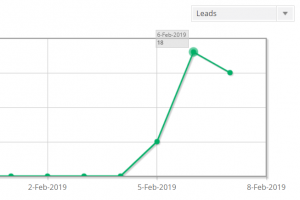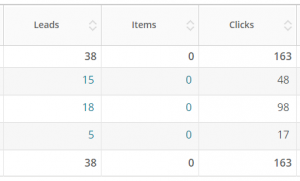Statistics shows that 81% of brands use affiliate marketing programs and they continue to grow in popularity, due to their performance-based nature. It’s no wonder that retailers want to add this sales channel to their reach. However, it’s not just as simple as setting up an affiliate program and sitting back and watching the sales roll in. A successful affiliate marketing program requires oversight — recruiting the right affiliates for your program, ensuring all affiliates are engaged and active, policing inappropriate affiliate behavior, communicating with affiliates, and reporting, and analysis. This has been covered in more detail in the post about affiliate manager’s core responsibilities.
As a company, you want to make sure that your program is running efficiently and successfully. There are various ways to manage your affiliate program:
I. You can manage it in-house with a dedicated in-house affiliate manager.
II. You can have it managed by the network that you choose.
III. You can have it managed it by an affiliate marketing company also known as an OPM or an outsourced program management (agency).
So how do you decide which is the best option for your company? In this article, I am going to cover the latter option of using an outside company to help you manage and grow your program. There are a lot of benefits to this that you will see immediately and I have outlined each below.
1. Experience
 Right away you have access to a seasoned affiliate manager. Not only do you have access to a dedicated manager with a wealth of knowledge but you also have access to their team and their collective experience. The expertise they bring will ramp up your program at a much faster speed. Having worked with multiple clients, they know what works and doesn’t work. They have launched numerous affiliate programs and will be able to launch quickly.
Right away you have access to a seasoned affiliate manager. Not only do you have access to a dedicated manager with a wealth of knowledge but you also have access to their team and their collective experience. The expertise they bring will ramp up your program at a much faster speed. Having worked with multiple clients, they know what works and doesn’t work. They have launched numerous affiliate programs and will be able to launch quickly.
2. Lower costs
There are so many cost savings with using an agency. There isn’t any downtime training as they are totally versed in affiliate management. An affiliate management company will have technical resources, programs, and tools, all of which would be an additional cost should you run your program in-house. By using an agency, you get the benefits of these industry tools without the additional expense of purchasing them.
3. Relationships
 This is a relationship-based business. Agencies have spent a lot of time developing and growing relationships with networks and publishers and hiring an agency gets you access to those relationships immediately. To develop these relationships can take a lot of time and work, but an affiliate management company already has the relationships in place and can hit the ground running for your program. These relationships can also help with cost savings as they are better versed at negotiating paid placements, securing network discounts for you.
This is a relationship-based business. Agencies have spent a lot of time developing and growing relationships with networks and publishers and hiring an agency gets you access to those relationships immediately. To develop these relationships can take a lot of time and work, but an affiliate management company already has the relationships in place and can hit the ground running for your program. These relationships can also help with cost savings as they are better versed at negotiating paid placements, securing network discounts for you.
4. Industry insights
Because it’s integral to their business, affiliate management companies will attend all the industry events. They will learn about new technologies and tools to help your program. They will know the trends in the industry and key insights. They will meet with experts in the field and learn from them and take that knowledge back to their clients. Also at these events, they will meet with qualified potential partners (affiliates, technology providers, etc).
5. Optimization
So while recruiting and finding quality affiliates is a huge part of running your affiliate program, optimization is also crucial. An affiliate management company will have experience in this area. They know the importance of quality traffic, conversion rates, and CPA. They will watch your competitors, monitor their campaigns and promotions and make recommendations.
6. Familiarity with technology
 Affiliate networks and tracking software can be complex and overwhelming. How do you decide what network to use for your program or the benefits of one over the other? Which affiliate software is best for an in-house-based affiliate program? Affiliate management agencies have set up hundreds of programs across all the network and know which ones are best for the various verticals. They also have great relationships with key people within these platforms. They can run the data and reports for you and can also leverage discounts.
Affiliate networks and tracking software can be complex and overwhelming. How do you decide what network to use for your program or the benefits of one over the other? Which affiliate software is best for an in-house-based affiliate program? Affiliate management agencies have set up hundreds of programs across all the network and know which ones are best for the various verticals. They also have great relationships with key people within these platforms. They can run the data and reports for you and can also leverage discounts.
7. Results-focused
Affiliate management companies are often paid a retainer plus performance bonuses. These bonuses can be a large part of their compensation. They are clearly incentivized to get results so will work to ensure your program is performing.
Should you decide to go down the route of hiring an outside company, how do you decide on the correct one? Let me give you 7 points to cover in your due diligence:
- Ask questions. Find out what are their strengths and what sets them apart from other agencies.
- Pricing. How do they charge for their services?
- References. Talk with others who have used their services.
- Professional experience. How much experience do they really have in the realm of affiliate program management?
- Possible conflicts. Do they manage competitors’ or potentially conflicting programs?
- Representation. Do they attend industry events? How else will they be able to give your program maximum exposure?
- Niche experience. Do they have experience in your niche or vertical?
Using an agency to manage your program gives you access to a wealth of knowledge and resources that can take your program to the next level. Set clearly defined guidelines and work together to grow the program. Outsourcing does not mean giving up control of your affiliate program. Rather, you are enhancing the program with the use of the best and brightest in the industry.
We hope that we have given you some insight into the benefits of using an affiliate management company. Good luck with your program and feel free to email us or comment below with any ideas or questions.


 The “rewards” component of the affiliate’s strategy resulted in misalignment between the end-user’s intent and the the merchant’s intent. As the above description (of the situation) shows, many of the forms were filled out in order to receive the promised incentive, and not because of the lead’s genuine interest in trying out the product.
The “rewards” component of the affiliate’s strategy resulted in misalignment between the end-user’s intent and the the merchant’s intent. As the above description (of the situation) shows, many of the forms were filled out in order to receive the promised incentive, and not because of the lead’s genuine interest in trying out the product.